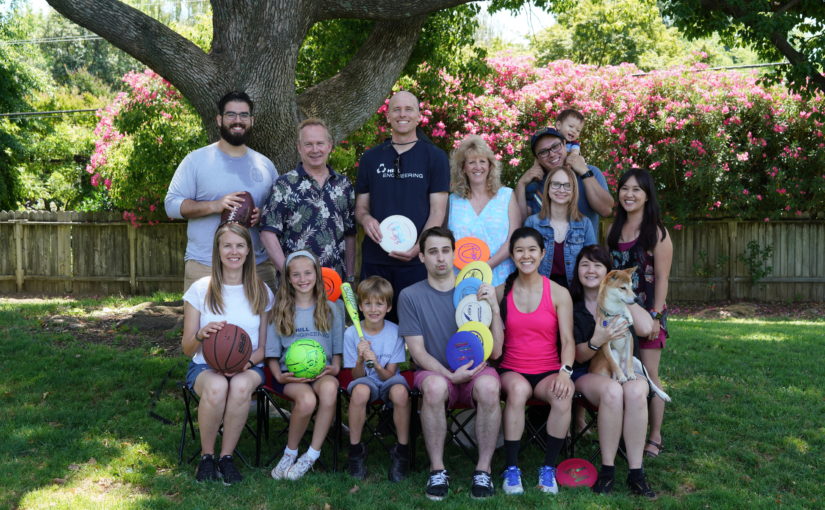As we move into 2020, we wanted to reflect on some of the highlights from the past year at Hill Engineering. We’d also like to take a moment to say thank you to all of our customers, collaborators, and supporters. We couldn’t do this without you. Continue reading 2019 Highlights at Hill Engineering
Hill Engineering Blog
Social Events 2019 recap
This year has been filled to the brim with social events for Hill Engineering. From our company picnic to camping at Lake Tahoe to the ever popular “Board Games Night”, there was fun to be had by everyone. Continue reading Social Events 2019 recap
Case Study: cold hole expansion process modeling
Cold hole expansion (Cx or cold expansion for short) of fastener holes is a technique that has been widely used in the aircraft industry to improve the fatigue performance of structural components. The cold hole expansion process introduces compressive residual stress near the vicinity of the hole that slows crack growth and can significantly improve fatigue performance. Continue reading Case Study: cold hole expansion process modeling
New publication – An Uncertainty Estimator for Slitting Method Residual Stress Measurements Including the Influence of Regularization
Hill Engineering recently published new research detailing our efforts to quantify uncertainty for slitting method residual stress measurements. This new approach provides a more accurate estimate of the measurement uncertainty associated with the slitting method, which is very helpful for probabilistic performance assessments. The paper is titled An Uncertainty Estimator for Slitting Method Residual Stress Measurements Including the Influence of Regularization and appears in Experimental Mechanics. The abstract text is available here along with a link to the publication. Continue reading New publication – An Uncertainty Estimator for Slitting Method Residual Stress Measurements Including the Influence of Regularization
Additive Manufacturing Benchmark Publication
Hill Engineering recently contributed to a publication related to residual stress measurement in additive manufacturing (AM) test specimens titled, Elastic Residual Strain and Stress Measurements and Corresponding Part Deflections of 3D Additive Manufacturing Builds of IN625 AM‑Bench Artifacts Using Neutron Diffraction, Synchrotron X‑Ray Diffraction, and Contour Method. The work was performed under the NIST AM-Bench program in collaboration with researchers from NIST, Los Alamos National Laboratory, University of California Davis, and Cornell High Energy Synchrotron Source. The abstract text is available here along with a link to the publication. Continue reading Additive Manufacturing Benchmark Publication
ASIP Conference 2019
Hill Engineering is presenting about residual stress aerospace forgings at the upcoming 2019 United States Air Force Structural Integrity Program Conference (ASIP) in San Antonio, TX. The 2019 ASIP Conference is specifically designed to bring together the world leaders in the area of aircraft structural integrity and to disseminate information on state-of-the-art technologies for aircraft structures in both the military and civilian fleets. Hill Engineering’s presentation will include a summary of recent work to quantify the residual stress variability in aerospace forgings. The abstract text is presented below. Continue reading ASIP Conference 2019
Welcome Dallen Andrew
We would like to welcome Dallen Andrew to Hill Engineering. Dallen has 10 years of experience as a mechanical engineer supporting aircraft structural integrity programs. He received a BS degree in Mechanical Engineering from Utah State University in 2009, and a MS degree in Mechanical Engineering from the University of Utah in 2011.
During his career, Dallen has gained experience in many aspects of aircraft structural integrity, with specialization in the fatigue and fracture of metals. He has worked on many projects requiring him to utilize his capabilities in fatigue crack growth analysis, fracture mechanics, durability and damage tolerance analysis (DADTA), fatigue testing, continuing damage, residual stress, finite element analysis (FEA), and non-destructive inspection.
Dallen is an organizer of the Engineered Residual Stress Implementation (ERSI) working group developing the analytical framework to allow the benefits from deep engineered residual stresses to be applied to aircraft inspection intervals for the United States Air Force. Dallen has significant experience supporting the A-10 and T-38 aircraft fleets. He also has significant expertise in the use of AFGROW and NASGRO fracture mechanics and damage tolerance software packages.
Please contact us today for additional information about Hill Engineering and the services we offer.
Vlog: How to Use the Nikon ModelMaker H120 3D Scanner
Hello Readers!
If you aren’t subscribed to our YouTube channel, we’d like to announce that our latest vlog is now live. Continue reading Vlog: How to Use the Nikon ModelMaker H120 3D Scanner
Agreement with VEQTER for Deep-Hole Drilling technology
Hill Engineering, answering strong demand for its residual stress measurement services, would like to announce our agreement with VEQTER, Ltd to license the Deep-Hole Drilling (DHD) technology. VEQTER, along with the University of Bristol, aided in the development of the DHD technique, and have practiced the technology for over 25 years. With this agreement, VEQTER will provide Hill Engineering with the equipment, technology, and support to deliver state-of-the-art DHD measurements within the North and South American Continents. Continue reading Agreement with VEQTER for Deep-Hole Drilling technology
Case Study: Machine distortion modeling
We’ve recently uploaded a new case study on the topic of part distortion caused by machining. Distortion is a significant problem faced by many industries, especially where rigorous dimensional tolerances are required. When not appropriately accounted for, distortion can lead to significant economic loss and should be managed for effective design and production. Continue reading Case Study: Machine distortion modeling
